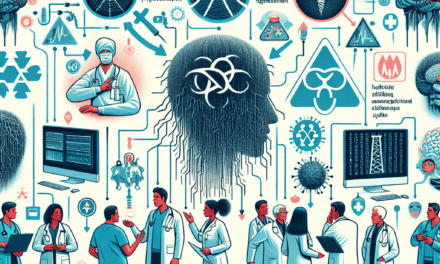Achieving Epic Honor Roll: NetApp’s Impact on Healthcare Excellence
In the rapidly evolving landscape of healthcare, organizations are constantly seeking innovative solutions to enhance patient care, streamline operations, and improve overall efficiency. One of the key players in this transformation is NetApp, a data management and cloud services company that has made significant strides in the healthcare sector. This article explores how NetApp’s technologies and solutions contribute to achieving the prestigious Epic Honor Roll, a recognition awarded to healthcare organizations that demonstrate excellence in using Epic’s electronic health record (EHR) system. We will delve into five critical areas where NetApp’s impact is most pronounced: data management, interoperability, patient engagement, analytics, and security.
1. Data Management: The Backbone of Healthcare Operations
Effective data management is crucial for healthcare organizations aiming to provide high-quality care. NetApp offers a range of solutions that help healthcare providers manage their data efficiently, ensuring that patient information is accessible, secure, and reliable.
One of the primary challenges in healthcare data management is the sheer volume of data generated daily. According to a report by the International Data Corporation (IDC), the healthcare industry is expected to generate 2,314 exabytes of data by 2020. This data includes electronic health records, imaging files, lab results, and more. NetApp’s data management solutions, such as ONTAP, provide healthcare organizations with the ability to store, manage, and protect this data effectively.
- Scalability: NetApp’s solutions are designed to scale with the growing data needs of healthcare organizations. This scalability ensures that as patient populations grow and data volumes increase, healthcare providers can continue to deliver high-quality care without interruption.
- Data Protection: With the increasing threat of cyberattacks and data breaches, protecting patient data is paramount. NetApp offers robust data protection features, including snapshots and replication, which help healthcare organizations safeguard their data against loss or corruption.
- Cloud Integration: Many healthcare organizations are moving to the cloud to enhance their data management capabilities. NetApp’s cloud solutions enable seamless integration with public and private cloud environments, allowing healthcare providers to leverage the benefits of cloud computing while maintaining control over their data.
For example, a large hospital network in the Midwest implemented NetApp’s ONTAP solution to manage its vast array of patient data. By consolidating its data storage and implementing advanced data protection measures, the hospital was able to reduce data retrieval times by 50%, significantly improving the efficiency of its operations and enhancing patient care.
2. Interoperability: Breaking Down Data Silos
Interoperability is a critical component of modern healthcare, enabling different systems and applications to communicate and share data seamlessly. NetApp plays a vital role in promoting interoperability within healthcare organizations, which is essential for achieving the Epic Honor Roll.
Many healthcare providers struggle with data silos, where patient information is trapped within specific systems, making it difficult to access and share. This lack of interoperability can lead to fragmented care, increased costs, and poor patient outcomes. NetApp’s solutions facilitate interoperability by providing a unified data platform that allows healthcare organizations to integrate various applications and systems.
- API Integration: NetApp’s solutions support application programming interfaces (APIs) that enable different systems to communicate with one another. This capability allows healthcare providers to share patient data across various platforms, improving care coordination and reducing duplication of services.
- Data Standardization: To achieve true interoperability, healthcare organizations must standardize their data formats. NetApp assists in this process by providing tools that help organizations convert and normalize data, making it easier to share and analyze.
- Collaboration with EHR Vendors: NetApp collaborates with leading EHR vendors, including Epic, to ensure that its solutions are compatible and can enhance the functionality of EHR systems. This collaboration is crucial for healthcare organizations aiming to achieve the Epic Honor Roll.
A case study involving a regional healthcare system illustrates the impact of NetApp’s interoperability solutions. The organization faced challenges in sharing patient data between its various facilities, leading to delays in care and increased costs. By implementing NetApp’s unified data platform, the healthcare system was able to break down data silos, enabling real-time access to patient information across its network. As a result, the organization improved care coordination and achieved significant cost savings.
3. Patient Engagement: Empowering Patients Through Technology
Patient engagement is a critical factor in improving health outcomes and enhancing the overall patient experience. NetApp’s solutions empower healthcare organizations to engage patients effectively, which is essential for achieving the Epic Honor Roll.
In today’s digital age, patients expect to have access to their health information and the ability to communicate with their healthcare providers easily. NetApp’s technologies enable healthcare organizations to create patient portals and mobile applications that enhance patient engagement.
- Access to Health Information: NetApp’s solutions allow healthcare organizations to provide patients with secure access to their health records, lab results, and appointment schedules. This transparency fosters a sense of ownership and encourages patients to take an active role in their healthcare.
- Telehealth Solutions: The COVID-19 pandemic accelerated the adoption of telehealth services. NetApp’s cloud solutions support telehealth platforms, enabling healthcare providers to offer virtual consultations and follow-ups, thereby improving access to care for patients.
- Patient Education: Engaging patients also involves educating them about their health conditions and treatment options. NetApp’s data management solutions can help healthcare organizations deliver personalized educational materials to patients, enhancing their understanding and adherence to treatment plans.
For instance, a community health center in California implemented a patient engagement platform powered by NetApp’s technology. The platform allowed patients to access their health records, schedule appointments, and communicate with their care teams. As a result, patient satisfaction scores increased by 30%, and the center saw a significant reduction in missed appointments.
4. Analytics: Driving Data-Driven Decision Making
Data analytics is transforming the healthcare landscape, enabling organizations to make informed decisions based on real-time data. NetApp’s analytics solutions empower healthcare providers to harness the power of their data, which is essential for achieving the Epic Honor Roll.
Healthcare organizations generate vast amounts of data daily, but without effective analytics tools, this data remains underutilized. NetApp offers advanced analytics solutions that help healthcare providers extract valuable insights from their data, leading to improved patient outcomes and operational efficiency.
- Predictive Analytics: NetApp’s analytics solutions enable healthcare organizations to leverage predictive analytics to identify trends and anticipate patient needs. For example, by analyzing historical data, providers can predict which patients are at risk of readmission and implement preventive measures.
- Operational Analytics: In addition to patient care, analytics can also improve operational efficiency. NetApp’s solutions allow healthcare organizations to analyze workflow processes, identify bottlenecks, and optimize resource allocation, ultimately reducing costs and improving service delivery.
- Population Health Management: NetApp’s analytics tools support population health initiatives by enabling healthcare organizations to analyze data across different patient populations. This capability allows providers to identify health disparities and tailor interventions to meet the specific needs of diverse communities.
A notable example of the impact of analytics is a large academic medical center that implemented NetApp’s analytics solutions to improve its population health management efforts. By analyzing data from various sources, the center identified a significant increase in diabetes prevalence among its patient population. Armed with this information, the organization launched targeted outreach programs and educational initiatives, resulting in improved health outcomes for patients with diabetes.
5. Security: Safeguarding Patient Data in a Digital World
As healthcare organizations increasingly rely on digital technologies, the importance of data security cannot be overstated. NetApp’s security solutions play a crucial role in protecting sensitive patient information, which is essential for achieving the Epic Honor Roll.
Healthcare data breaches are on the rise, with the U.S. Department of Health and Human Services reporting that over 45 million patient records were compromised in 2020 alone. NetApp’s security solutions help healthcare organizations safeguard their data against unauthorized access and cyber threats.
- Data Encryption: NetApp offers robust encryption solutions that protect patient data both at rest and in transit. This encryption ensures that even if data is intercepted, it remains unreadable to unauthorized users.
- Access Controls: Implementing strict access controls is essential for protecting sensitive patient information. NetApp’s solutions allow healthcare organizations to define user roles and permissions, ensuring that only authorized personnel can access specific data.
- Compliance Support: Healthcare organizations must comply with various regulations, including HIPAA, to protect patient data. NetApp’s security solutions are designed to help organizations meet these compliance requirements, reducing the risk of costly fines and reputational damage.
A case study involving a healthcare provider in New York highlights the importance of security in achieving the Epic Honor Roll. After experiencing a data breach, the organization turned to NetApp for assistance in enhancing its security measures. By implementing NetApp’s encryption and access control solutions, the provider was able to restore patient trust and achieve compliance with HIPAA regulations, ultimately positioning itself for recognition on the Epic Honor Roll.
Conclusion: The Path to Healthcare Excellence with NetApp
In conclusion, NetApp’s impact on healthcare excellence is profound and multifaceted. By providing innovative solutions in data management, interoperability, patient engagement, analytics, and security, NetApp empowers healthcare organizations to achieve the prestigious Epic Honor Roll. As the healthcare landscape continues to evolve, organizations that leverage NetApp’s technologies will be better positioned to deliver high-quality care, improve patient outcomes, and navigate the complexities of modern healthcare.
As we look to the future, it is clear that the integration of technology in healthcare will only deepen. Organizations that prioritize data management, interoperability, patient engagement, analytics, and security will not only enhance their operational efficiency but also foster a culture of excellence that ultimately benefits patients and communities alike. The journey toward achieving the Epic Honor Roll is not just about recognition; it is about committing to a standard of care that prioritizes patient well-being and harnesses the power of technology to drive positive change in the healthcare sector.





